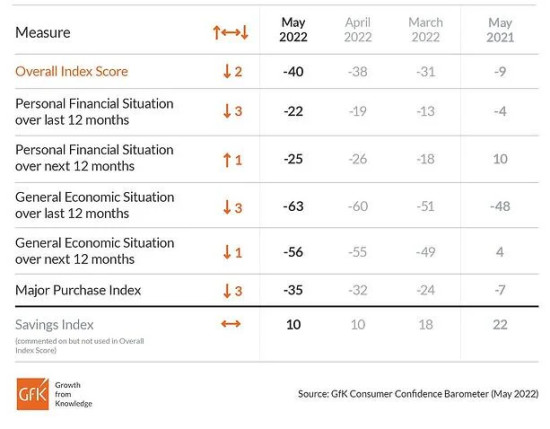Despite surging inflation and economic worries, retail sales in the UK actually rose last month, partly driven by higher alcohol and tobacco sales.
Official figures from the Office for National Statistics (ONS) show retail sales volumes rose by 1.4% in April following a fall of 1.2% in March. However, the longer-term trend remained weak with it suggested that the recent uplift was down to people staying in and drinking at home to save money amid the cost of living crisis.
Food store sales volumes rose by 2.8% last month, mostly because of higher spending on alcohol and tobacco, with supermarket food sales broadly unchanged.
Despite clothing sales having a strong month as people purchased items for summer holidays and events that were postponed last year, non-food sales volumes in stores fell by 0.6% in April as people cut back on non-essentials such as furniture.
Analysts had expected sales in April to fall further as consumers cut back in the face of rising living costs. The latest official figures released this week showed inflation hit 9% in the 12 months to April – the highest rate for 40 years.
Martin Beck, chief economic adviser to the consultancy EY Item Club, said that while it was early days, April’s performance suggested that “the consumer sector may hold up against current headwinds better than some expect”.
However, Danni Hewson, a financial analyst for AJ Bell, warned that the boost might be short-lived, saying: “People can only spend a pound once and when that pound is worth significantly less than a year ago people have to make choices.”
Samuel Tombs, an economist at Pantheon Macroeconomics, also pointed out that the impact of April’s increase in both National Insurance contributions and energy bills had not fully emerged in the retail sales data yet. “It won’t be until May’s data that we can assess how much of the resulting squeeze on households’ real disposable incomes has fed through to spending,” he said.
Separate data published by GfK today showed that consumer confidence in the UK had fallen to the lowest level since its records began in 1974, fuelling concerns that the economy will slide into recession this year.
The consumer confidence index fell 2 percentage points to minus 40, with four measures used to compile the figure down and only one up.

Joe Staton, Client Strategy Director at GfK noted that consumer confidence is now weaker than in the darkest days of the global banking crisis, the impact of Brexit on the economy, or the Covid shutdown. He added: “Even the Bank of England is pessimistic, with Governor Andrew Bailey this week offering no hope of tackling inflation. The outlook for consumer confidence is gloomy, and nothing on the economic horizon shows a reason for optimism any time soon.”




